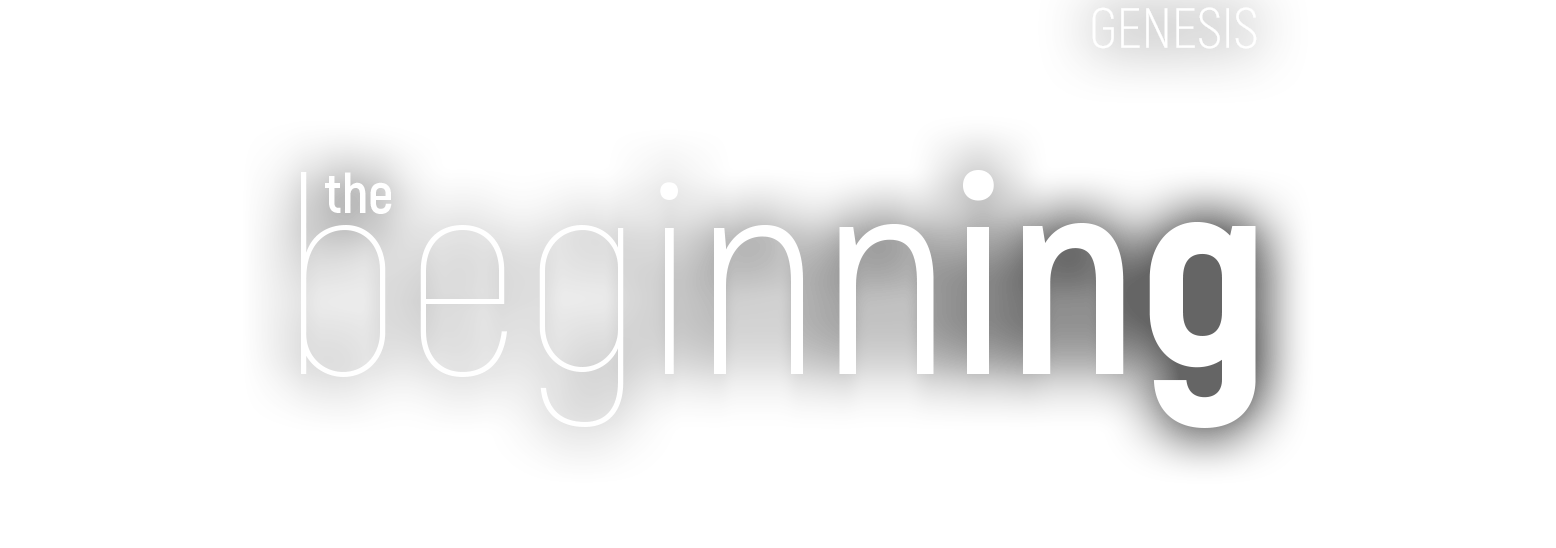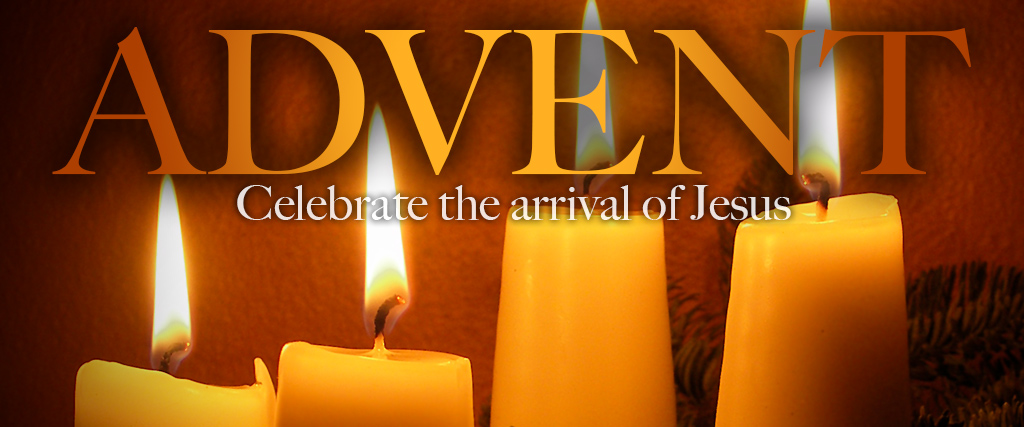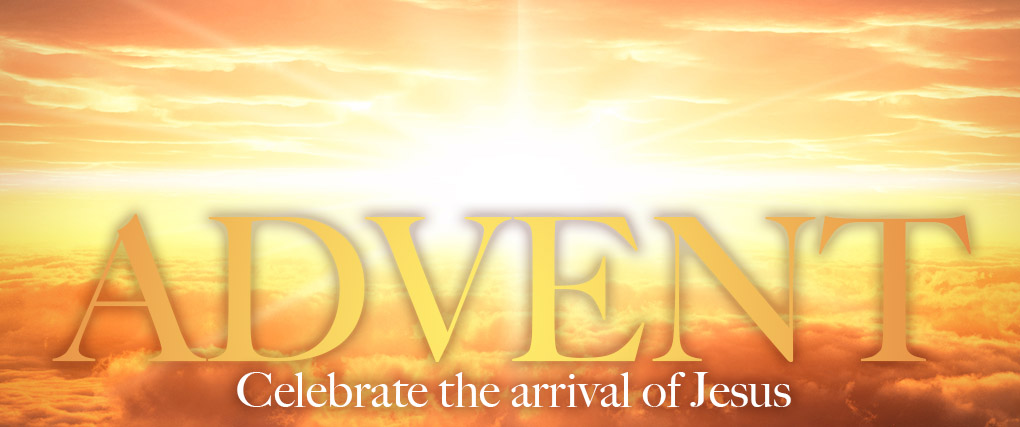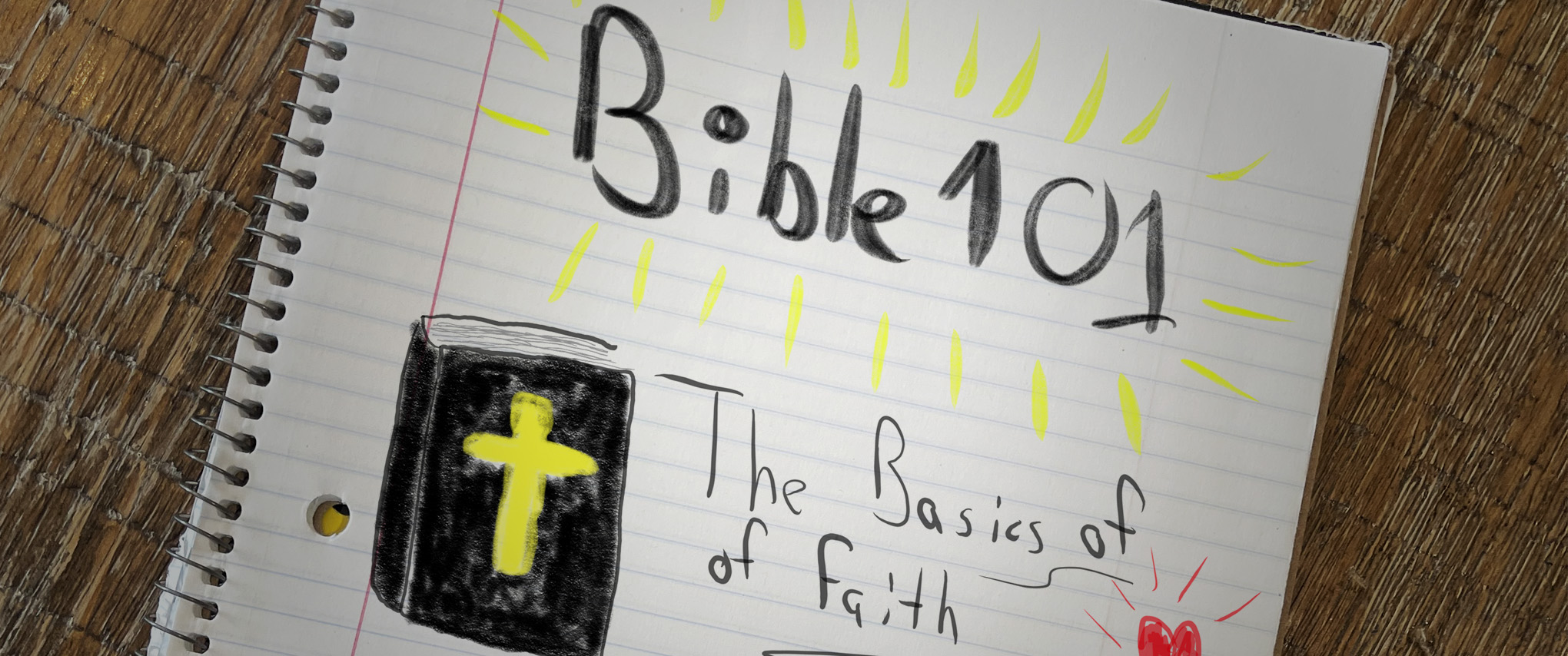Date: Jan. 7, 2018
Genesis 1:1-2:3
Key Verse: Genesis 1:1
In the beginning God created the heavens and the earth.
Welcome to our first worship service of 2018. It is a new year and the time for people all around the world to make some new year resolutions. People want to get the new year off to a good start. It is a time to take a hold of our lives and, in some ways, begin again with a fresh start. Now, we know that most people break their resolutions pretty quickly, but we have this thought that if we start the year out right, then it will be a good indication of how the rest of the year will go. Since it is a new year, a time for a fresh beginning, it is very appropriate that we are starting a new sermon series in the book of beginnings Genesis. Genesis is the first book of the Bible, so you shouldn’t have any trouble finding it. It is not the oldest book in the Bible. That distinction belongs to the book of Job. However, Genesis is the book of the beginning. It is the book of a lot of firsts: the first life, the first words, the first sin, the first clothes, the first food, the first person with faith, and the list goes on. In today’s passage, we see the story of creation, the beginning of all things. It is not just the creation of the earth, but of all things, and we meet the creator for the first time.
Like I mentioned, Genesis is not the oldest book in the Bible, which seems odd considering its content. It was written down by Moses and it is a story from the creation of space and time to a few hundred years before Moses’ own birth, spanning millennia, but it all starts here in chapter 1. The first words in the entire Bible are, “In the beginning God created the heavens and the earth.” (1:1) It is in those few first words that we get the title of the book. Genesis means “in the beginning”. This isn’t the start of the day or year, it is the start of all things and the usage of the words indicates that there is an end, because all beginnings have ends. The universe began and the universe will end. Genesis looks at those early days and that first verse sets a minimal level of belief that we have to have. We have to believe that God created the heavens and the earth. Without that belief, all we will do is question the rest of the Bible. If we cannot believe that God created the heavens and the earth, then how will we be able to believe that Jesus died for our sins, rose again on the third day and now sits at the right hand of the Almighty? It is fundamental that we believe that God is the Creator God. If we have that basis, it helps us to understand even more about the Bible. Think of it this way, if you have a fundamental belief in your heart, it is easy to dismiss incorrect things and have proper context. For example, we know that the sky is blue. We see it every day and know for a fact that it is blue. If someone were to tell us that the sky is red, we would not believe it because it goes against our fundamental belief. If they produce a picture that the sky is red, we do not throw away our entire belief system about the sky, but we can investigate how it is so. If it is sunrise or sunset, the sky can be red, but it is mostly blue. Likewise, if we know that God created everything, then new and possibly contradicting information can expand our thoughts of what it means that God created the heavens and the earth in all of its beauty and majesty.
This verse is important because it sets up the rest of the Bible, including the rest of this passage. The next verse says, “Now the earth was formless and empty, darkness was over the surface of the deep, and the Spirit of God was hovering over the waters.” (1:2) Right there at the beginning, there was nothing but darkness. The passage says that the earth was formless and empty. There was no light; there was just emptiness and the Spirit of God hovering in anticipation of creation. The Spirit is just waiting to get to work. It is an interesting image to try to think about and I am pretty sure that Moses was limited in his description of what was going on. At any rate, what we are presented here is that there was a blank canvas just waiting to be turned into a masterpiece with the master artist just waiting to begin his craft, but some preparation is in order before the detail work can begin.
That preparation begins very simply, “And God said, “Let there be light,” and there was light. God saw that the light was good, and he separated the light from the darkness. God called the light ‘day,’ and the darkness he called ‘night.’ And there was evening, and there was morning—the first day.” (1:3-5) The first thing that God created was light. There was only darkness before, but with simply some words, there was light. He didn’t let the light mix with the darkness, but separated them into night and day, creating the first evening and morning, the first day. There was nothing else in existence, but there was light. God called the light good because it had come from him and became the basis from which we can see. Now, God could have completely gotten rid of the darkness, but by keeping it and separating it from the light in the nighttime, we can appreciate it better. If it were always light, we would take it for granted, but with darkness, we can look forward to the light.
Also, in the first day, we can see how God works. Darkness is nothingness and is a state of disorder, but light is a state of order, and in the subsequent days, God’s ordering of things is seen even more. On the second day, God created the sky to separate the waters below it from the waters above it. It is kind of a confusing statement. What water is above the sky. On the second day, the waters above could be referring to the clouds in the sky or to the great expanse of space. Moses didn’t have a word for space and space seems just as deep as the oceans. Plus, the sky or atmosphere separates the planet from the vastness of space. At any rate, God created order between what is below the sky and what is above it. This order continues on into the third day, where God takes the water and begins to localize it, creating land. He takes the chaos and reigns it in. God is someone who prefers order over disorder. He takes what was not to make what is. According to the second law of thermodynamics, in a closed system the amount of entropy or measure of disorder is increasing. When something like a coffee cup falls, it doesn’t go from a disorganized state to an organized one. It breaks, which is more disordered that it was before. The only way to go to a more ordered state is by introducing an outside intelligence. We can take broken pieces and make the whole again. God works in the same way. He took the disordered universe and organized the light, the sky, the water and the land. God even put the sun, moon and stars in the sky so that we would have a way to mark time in an organized fashion.
Beginning with the third day, God begins to fill the world he created and ordered. He puts plants on the land; the sun, moon and stars in the sky; the fish in the sea; the birds in the air; and the animals on the ground. Another thing that is interesting is that God loves his variety. Although he is a God of order, he created life with tremendous variety. The Bible says that God created many things according to their kinds. He did not only create one animal or one plant, but a whole biome of different things. There are so many things that are unlike anything else. Look at the animals. There is nothing else like a giraffe with its long neck. Or what is like an elephant with its trunk. Some animals have horns and antlers. Some have fur, some scales, some just have skin. There are animals that can live and breathe in both that land and the sea. Marsupials are mammals with pouches, while the duck-billed platypus is the only mammal that lays eggs. There are single-celled organisms and creatures with exoskeletons and creatures with endoskeletons. There is life that loves moderate temperatures and life that thrives near boiling geothermal vents. Beyond all that variety, God created each creature to be unique as well. Many animals have personalities that are unique to them and just look at the variety that we have as people. There are no two people that are identical. Even identical twins are not 100% identical.
In this passage, we can also see God’s power. Starting with the first day, God spoke everything into existence. By simply saying the word, it happened. Wouldn’t you just like to have that ability? If you could just simply speak and have it happen. It would seem like performing magic to us, but it is God’s real power. His power is in his word and his word never failed. There wasn’t one time that when God spoke nothing happened. After every time God speaks, the Bible says, “and it was so”. It happened just as God said it. God’s power is in his word and it never returns empty. At the beginning of John’s gospel, John deliberately echoes the beginning of Genesis. “In the beginning was the Word”. (John 1:1) John calls Jesus the very living word of God. Jesus is the power of God in a person. We also refer to the Bible as God’s word and it is important to make that distinction. Just as God’s power never returned empty, the rest of the Bible has just as much power because it too is the word of God and it always has an effect on people even centuries after it was finalized. People are changed by hearing the gospel message that is in the Bible. It brings hope to the hopeless because God’s word has power; power to change lives and create life.
In six days God created everything, but not everything was perfect. There was light and sky and land. There was the sun, moon, fish, birds and other animals, but there was something missing. There was no one in existence to take care of it and enjoy it. So, on the sixth day, God created his greatest creation humanity. “Then God said, ‘Let us make mankind in our image, in our likeness, so that they may rule over the fish in the sea and the birds in the sky, over the livestock and all the wild animals, and over all the creatures that move along the ground.’” (1:26) God created people to rule over all creation, but in all creation humanity is unique. People were created on the same day as the animals, but we are a different kind of animal. We can see it around us. There is something that is unique among people. Our physical bodies are very similar to other animals. We have many of the same organs and even our DNA is very similar to many animals on the planet, but there is something that still separates us from the animals. We have concepts. We have a concept of beauty. We love to create and build. We change the world around us in dramatic ways. We strive to discover and grow and change ourselves. We seek purpose beyond survival and propagation. Animals live by instinct and simply seek to have more babies, but people want more. We want to make a difference and we have willpower to overcome obstacles. We are not merely reacting based on chemicals in the brain. There is something more to people and it is this passage that shows us that we were created in the image of God. We have the image of God within us. Sin may be obscuring that image, tarnishing it, but each and every person was created in God’s image. Male and female, we are each created in the image of God.
God’s image in us is the only reason that there is a dramatic difference between us and other animals. There are some animals that are very intelligent. Dolphins, chimpanzees and gorillas are all very intelligent, but they don’t hold a candle to what people can do. We are builders and creators without equal because we were created in God’s image. Some animals make things. Birds make nest, spiders spin webs, chimps make tools, but none of those constructs rival the ability of people. I am not saying this to make people proud, but to show that, yes, we are God’s greatest creation. We were created to rule over the earth and all things in it. Because of that image of God, we have art, science and engineering. We build and create because we are made in the image of our Creator. He is our Father and we are in many ways like our daddy. Lucas, many times, just wants to be like his daddy. He looks a lot like I did when I was younger and he’ll imitate me at times. He’ll sit the way I sit, eat the way I eat and try to mimic the faces and sounds that I make. He can replace words in a song to make a new song. He learns and grows and wants to be like his dear old dad. You know what? That is no different than us humans wanting to be just like our Creator God and heavenly Father.
By creating a ruler over creation, we can still see how God loves his order. There are levels of complexity to his creation. The moon orbits the earth. The earth goes around the sun. Our solar system orbits the center of the galaxy and the galaxy flies through greater space. Then we can also look the other direction to the smallest of things. We look at the structure of life. Our structure is complex with each part serving its purpose in keeping us alive. Our bones, hearts, lungs, stomachs and intestines all come together to keep us alive. And there are different types of cells that make up each of these organs. Plus, each cell, itself, is a veritable microcosm, but it all works together to keep us going. For all of our ingenuity and ability to create, we are unable to replicate the complexity of a living organism. Much or robotics is set up to mimic the motion to animals and people, but for all our advancements, they still pale in comparison to what God has made.
Our Creator is also loving. “God blessed them and said to them, ‘Be fruitful and increase in number; fill the earth and subdue it. Rule over the fish in the sea and the birds in the sky and over every living creature that moves on the ground.” Then God said, ‘I give you every seed-bearing plant on the face of the whole earth and every tree that has fruit with seed in it. They will be yours for food. And to all the beasts of the earth and all the birds in the sky and all the creatures that move along the ground—everything that has the breath of life in it—I give every green plant for food.’ And it was so.” (1:28-30) God gave his blessing to his creation and he wanted them to increase. He gave them food so that they could survive and thrive. He took care of every animal and each person. God didn’t want to create pets, he created children.
There is also a term in this passage that I haven’t yet touched on. After God created something each day, he called it good. This shows God’s goodness, as well. Everything that God created was good because God himself is good. God can’t create bad because God is perfect and good. Now, the world is a little messed up now, but that isn’t because of a lack in God’s goodness, but because we messed it up. We broke it, but God has a plan to fix it and that is Jesus. After God created people, the Bible goes from saying that what was created was good to being very good. God’s creation was completed with the arrival of people, so it was very good. There are many people out there that don’t have a good sense of self. They feel inadequate and unworthy. I know this because I battle that in my life all the time. I hardly feel good enough for anything. I don’t think that I am a good enough husband, good enough father, good enough worker, good enough son, good enough friend or good enough preacher. To an extent it is helpful because I can strive to become better, but it can be debilitating and prevent me from doing my best. Feeling inadequate can make me overcompensate by being loud and forceful, but it doesn’t solve the issue. But after creating people, God saw that it was very good. God is good and his creation was not created to be inadequate but very good. You are very good; I am very good because God saw it and it was so.
After six days of creation, the seventh day was a little different. “By the seventh day God had finished the work he had been doing; so on the seventh day he rested from all his work. Then God blessed the seventh day and made it holy, because on it he rested from all the work of creating that he had done.” (2:2-3) God rested on the seventh day, not because he was tired from all the creating, but because he wanted to commemorate his creation. He wanted to take the time to reflect on his creation. He made the day holy and it became a day to honor and remember what God has done. It became a day to honor and worship God as our creator, and, quite honestly, that is why we are here today. God knows us and the day of rest was created because he knows that we need to set aside a day to put aside all of our regular life and focus on our relationship with God.
With everything in this passage, it is still the most important thing to remember that God created the heavens and the earth. God made everything. When we hold onto that as a fundamental belief, we can be amazed at his wonderful creation. We can see the variety in the world and come to know more about God, because he created it. It is a sci-fi trope that other planets are of only one type: an ice planet, a desert planet, a forest planet or a water planet; but the world God made is teeming with different habitats. We can see the detail work in our bodies and in the world around us and know that God is in the details. We are so intricate that it is impossible for it to be random. But all that intricacy is put there by God. King David wrote a song to God and in it he wrote, “I praise you because I am fearfully and wonderfully made; your works are wonderful, I know that full well.” (Psalm 139:14) Let us know that fully well, too, and praise our Lord, the Creator of everything.






